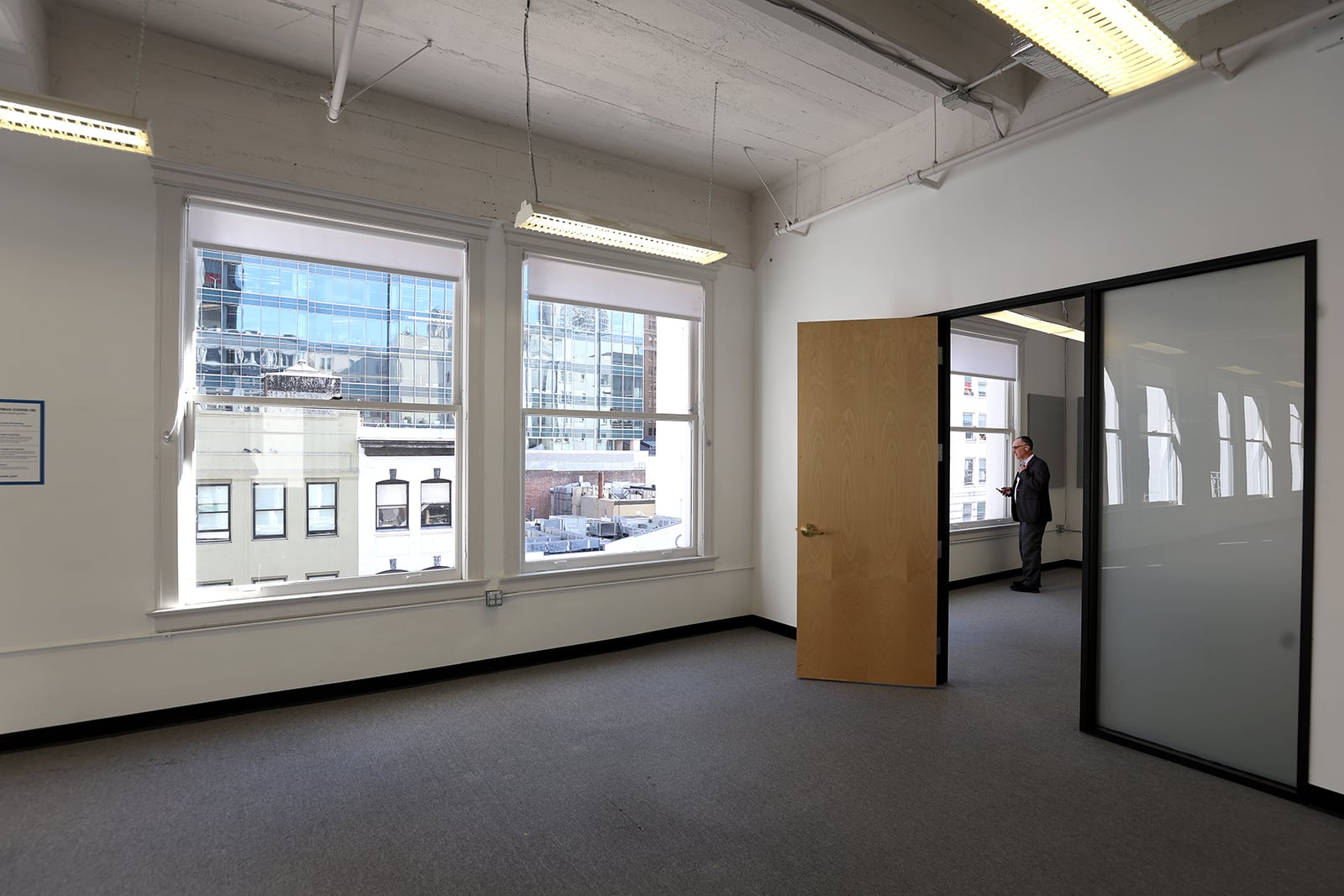Almost one-fifth of the nation’s office space is vacant, a record high vacancy rate that is predicted to continue rising.
Cities are taking action to promote the conversion of vacant office space into much-needed housing in an effort to strengthen their economy and alleviate their housing shortages. These consist of shortened approval periods, modifications to building code standards, and exemptions from affordable housing regulations. Additionally, several states and towns offer developers subsidies or tax breaks.
According to Alex Horowitz, project director of the Housing Policy Initiative at The Pew Charitable Trusts, cities should concentrate on lowering needless bureaucratic barriers to make conversions possible.
Office vacancy rates are at all-time highs, and the United States is lacking millions of houses. Although turning vacant commercial space into homes makes perfect sense, the price per square foot is simply too expensive.
The average cost of buying and converting an office building to a residence is $685 per square foot. While creating a new multifamily development costs roughly $588 per square foot, purchasing a completed multifamily property typically costs $600 per square foot.
Costs are increased by regulatory obstacles like out-of-date building rules, minimum unit sizes, and needs for natural light. To get over these challenges, cities are attempting a number of strategies.
From coast to coast
In an attempt to promote conversions, Minneapolis relaxed a number of rules in September. These included removing the need for public hearings, requiring less thorough traffic studies, and exempting converted buildings from the usual requirement that 20% to 30% of units be rented at below-market rates.
For downtown conversions authorized prior to 2030, San Francisco has eliminated real estate transfer taxes and other planning and building code restrictions.
In July, Seattle authorized exemptions from some design development guidelines and housing affordability requirements for commercial-to-residential conversions.
Office building owners can expedite conversions by using New York City’s Office Conversion Accelerator program, which offers a single point of contact for everything from zoning inquiries to permits.
Additionally, Denver started a pilot program for adaptive reuse last year to expedite and simplify the process of obtaining city approval for modifications.
According to Jon Gambrill, managing director of the Denver office of the international architecture firm Gensler, more than 5,000 new apartments might be added to the downtown area if the top 16 buildings chosen by the firm and local authorities were turned into residential space.
According to a JuneUrban Institute survey, the cities that stand to gain the most from turning vacant offices into housing are Atlanta, Denver, Phoenix, the San Francisco Bay Area, and Seattle.
Nevertheless, conversions haven’t done much to address the housing issue thus far.
According to commercial real estate services and investment firm CBRE, office-to-multifamily conversion projects produced around 22,000 flats between 2016 and April 2024. Over the following few years, an additional 31,000 flats are expected to be produced by the 169 projects that are currently planned or under construction. Even with the increase, that sum represents less than 0.5 percent of all apartments in the United States.
In a June presentation, Seattle’s Office of Planning and Community Development stated that, over a seven-year period, city officials anticipate that less than a dozen conversion projects will create 1,000 to 2,000 new housing units.
Money matters
States and cities are also attempting to encourage conversions by providing financing and incentives.
A new incentive for turning commercial properties into rental housing was included in New York City’s 2025 budget. Projects with at least 25% affordable units might receive up to 90% tax exemption.
In order to convert four office buildings into 1,000 apartments, Chicago has invested $115 million for developers. Approximately one-third of these units would have reasonable rental prices.
Through its Housing in Downtown program, Washington, D.C., offers 20-year tax breaks for conversions from commercial to residential space.
According to apartment search engine RentCafe, the District of Columbia was the country’s leader in adaptive reuse from 2021 to 2024, generating 5,820 new dwelling units from office facilities. New York and Dallas came in second and third, respectively, with 5,215 and 3,163 units.
In 2022, $400 million for office-to-residential developments was approved in California.
There have been some obstacles to commercial-to-residential laws.
Legislation that would have given developers financial incentives, such as the ability for local governments to set aside up to 30 years’ worth of property tax money to encourage affordable housing conversions, was rejected by Democratic Governor Gavin Newsom of California in October. Additionally, it would have expedited the approval process for office building conversions into mixed-use or residential constructions.
Newsom objected to changes in labor practices, including as processes for contesting violations and the issue of stop-work orders for violations.
Additionally, earlier this year, the Colorado legislature rejected a bill that would have provided refundable tax credits of up to $3 million for each commercial-to-housing project beginning in 2026.
Nonetheless, experts anticipate a rise in housing conversion initiatives nationwide.
According to Pew’s Horowitz, all Americans, especially those living in underprivileged areas, require affordable housing. However, the development of deeply inexpensive homes is hampered by antiquated regulations.
Stateline is a division of the nationwide nonprofit news agency States Newsroom, which focuses on state policy.
States Newsroom, 2024. The website is atstateline.org. Tribune Content Agency, LLC is the distributor.
Note: Every piece of content is rigorously reviewed by our team of experienced writers and editors to ensure its accuracy. Our writers use credible sources and adhere to strict fact-checking protocols to verify all claims and data before publication. If an error is identified, we promptly correct it and strive for transparency in all updates, feel free to reach out to us via email. We appreciate your trust and support!







